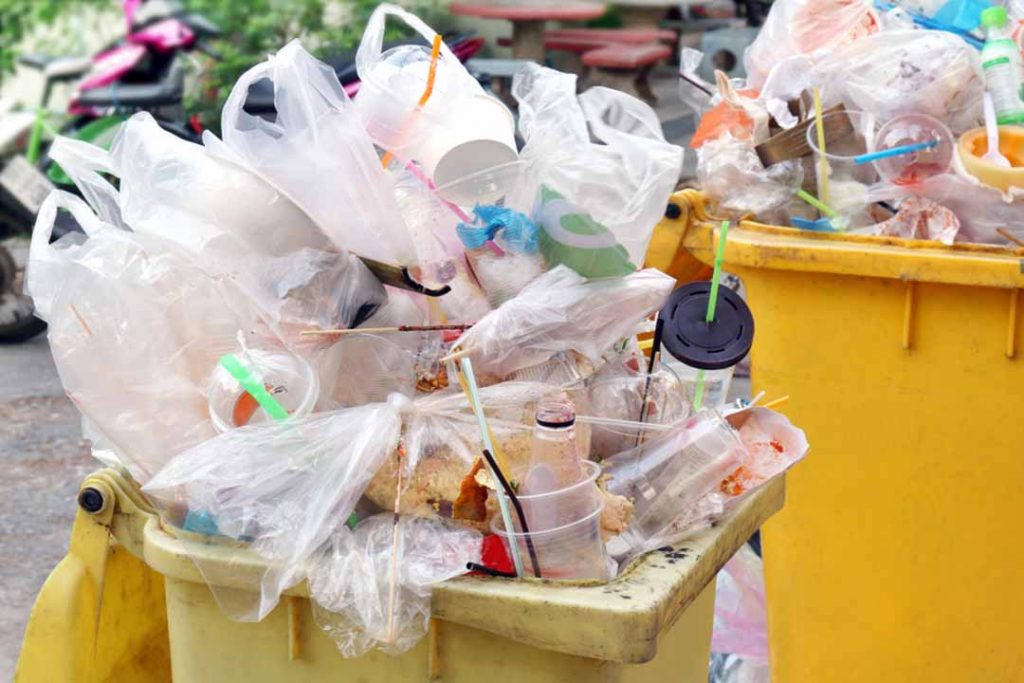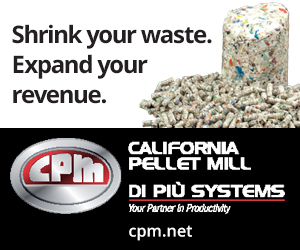
Sen. Tom Udall and Rep. Alan Lowenthal recently outlined how components of their national recycling act might be adapted to fit different states. | DeawSS/Shutterstock
Two members of Congress who have pushed for EPR, a national deposit system and more are now encouraging state and municipal lawmakers to introduce their own versions of the legislation.
The Break Free From Plastic Pollution Act, introduced in Congress in February, contains numerous measures that affect the U.S. recycling system, including extended producer responsibility (EPR) for packaging, a national container deposit, minimum recycled content requirements and more. In EPR systems, producers of different material types are mandated to manage and/or fund recovery systems.
The bill was introduced by Sen. Tom Udall, D-N.M., and Rep. Alan Lowenthal, D-Calif., and it has generated significant discussion within the recycling sector. It was referred into a House committee and has not seen action since then.
But on Aug. 12, Udall and Lowethal released a memo that serves as a guide for how local and state lawmakers can bring policies from the national act into their own jurisdictions. The memo was addressed to the National Caucus of Environmental Legislators, a group of state lawmakers across the country who are particularly interested in environmental issues.
“We encourage you to use the attached blueprints along with the bill text and our supplemental materials to craft robust legislation for your state,” Udall and Lowenthal wrote. “Whatever you decide, we encourage you to build on the great action that has already taken place across the country and to further push for change that will have a lasting impact.”
In a statement to Resource Recycling, Udall said the blueprint for state action was developed in response to “the growing support and interest in this legislation from across the country.” He also framed it as a complement to the national act, not a shift away from pushing for national legislation.
He noted that addressing plastic waste requires work in all levels of government.
“Action at the state and local level enables people to combat the plastic trash they see everywhere in their communities and will accelerate action at the federal level by bringing industry to the table for national solutions,” Udall said.
Encouraging states to ‘think bigger’
The memo breaks out descriptions of policies including EPR, container deposits, product bans, source reduction, alternative material use, recycled-content mandates, plastic waste export restrictions, a moratorium on plastics production facilities, and more.
In their memo, the federal lawmakers offer a few examples of how Break Free From Plastic Pollution components might be adapted to fit different states. For example, they note that 10 states have introduced or are working to introduce EPR bills for all packaging materials.
“These states may wish to consider introducing some of the complementary legislative elements related to single-use plastics and beverage containers mentioned in this memo,” the lawmakers wrote. “Other jurisdictions might find the model elements in this memo to be best practices to incorporate in a new comprehensive bill that places EPR for all packaging materials at its core. Still others might consider a multi-faceted approach to plastics alone as what you most need as a first step.”
Additionally, the memo pledges assistance from the lawmakers’ offices or the organizations that support the national act, and it includes sample legislation covering EPR, container deposits, product bans and more.
Udall said the blueprint for state action also aims to encourage states to work together on regulatory development.
“We designed these blueprints to support legislators at the state and local level and will encourage those states that have been leading to think bigger, including regional partnerships to build a stronger response to plastic and packaging pollution,” he said.
Bill had its roots in state discussions
The American Chemistry Council (ACC), which represents plastic resin makers and other plastics stakeholders, has voiced concern with some of the national act’s components. A plastics leader at the organization discussed the recent call for state-level action in an interview with Resource Recycling.
The national bill includes measures “that have been proposed at the state level for a number of years,” said Keith Christman, managing director of ACC’s Plastics Division. He pointed to container deposit systems, EPR and specific bans on products as examples.
Indeed, the bill’s advocates also wrote in the memo that the national act was “based on proposed legislation and existing statutes from various states combined for the first time to create a comprehensive bill to address plastic pollution and packaging waste in the United States.”
Because of that state-level history, a renewed push for states to adopt such measures is not particularly concerning from an industry advocacy perspective.
“We’ve been engaging in discussions with states for years, and we’ll be continuing to engage with them,” Christman said.
He added that ACC supports the goals of eliminating plastic pollution, even if the group disagrees with some of the tactics in the national bill. Plastics industry stakeholders have been particularly opposed to components of the national bill that single out plastic rather than having regulations apply to all materials. For example, the national bill includes a temporary pause of up to three years on permitting plastics production facilities, with an aim to revise environmental regulations and conduct studies on the impacts of such facilities.
These regulations could lead brands to switch to other materials that might carry environmental impacts greater than those associated with plastic, Christman noted.
However, the ACC is not opposed to all the policy tools included in the Break Free From Plastic Pollution framework.
For instance, Christman said the industry group has voiced growing support for recycled content in packaging, although he cautioned that regulations mandating recycled content must be carefully crafted, in part to avoid disrupting existing use or commitments by brands.
ACC’s position on recycled content inclusion has evolved alongside plastics processing technologies, Christman explained. He pointed to the suite of plastics conversion technologies known as chemical recycling or advanced recycling.
“Some challenges around recycled content have been the ability to use recycled material in food contact, for example,” Christman said.
Chemical recycling technologies can be one way to ease those challenges and get higher levels of recycled content into food packaging, Christman explained. He noted a recent announcement from Berry Global and Sabic to supply chemically recycled plastic for use in Philadelphia-brand cream cheese packaging sold in Europe.
More stories about legislation
- Bottle bill advocates take stock of wins, hurdles this year
- State law, local ordinance and the question of alignment
- EPR stalls out in NY Assembly again



